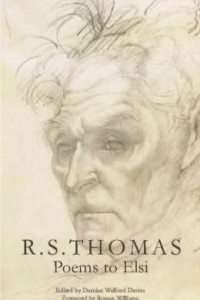Poetry in Translation (CCCLXVII), R. S. THOMAS (1913-2000), Wales: “Acting”, “Arta dramatică”
Acting
R. S. Thomas
(1913-2000)
Being unwise enough to have married her
I never knew when she was not acting.
‘I love you’ she would say; I heard the audiences
Sigh. ‘I hate you’; I could never be sure
They were still there. She was lovely. I
Was only the looking-glass she made up in.
I husbanded the rippling meadow
Of her body. Their eyes grazed nightly upon it.
Alone now on the brittle platform
Of herself she is playing her last rôle.
It is perfect. Never in all her career
Was she so good. And yet the curtain
Has fallen. My charmer, come out from behind
It to take the applause. Look, I am clapping too.
* * * * * * *
Arta dramatică
R. S. Thomas
(1913-2000)
Făcând eroarea de a mă fi căsătorit cu ea
N-am ştiut niciodată dacă nu se preface.
“Te iubesc” mărturisea ea; iar eu auzeam publicul
Oftând. “Te urăsc”; dare eu nu eram sigur
Dacă sala încă urmărea dialogul. Era splendidă. Eu
Eram doar oglinda în care ea se reflecta
Şi cultivam dealurile ondulate
Ale trupului său. Ochii străinilor
Păşteau acolo seara.
Acum este singură, pe scena asta improbabilă,
Unde îşi joacă ultimul rol
La perfectie. Niciodată, în cariera ei,
Nu a jucat atât de bine. Şi totuşi cortina
A căzut. Zâna mea a reapărut la rampă
Să primească aplauzele. Uite că applaud şi eu.
Rendered in Romanian by Constantin ROMAN, London,
© 2015 Copyright Constantin ROMAN
* * * * * * *
Yet, for this frugal clergyman, the monies of a Nobel Prize might have been an impediment, if not an embarrassment: he even denied his wife the luxury of using an electric Hoover, as “it would make too much noise”…
The poet Lord Gowrie considered R. S. Thomas as an Anglican or, as Thomas would prefer, an episcopalian poet, and place him in the context of other poets unfazed by the devotional: T. S. Eliot, John Betjeman, W. H. Auden and Geoffrey Hill.
Thr spirit of Ronald Stuart Thomas (1913-2000), one of the greats of the english-language poets of the twentieth century, is best captured by his enduring epitaph:
Prompt me, God;
But not yet. When I speak,
Though it be you who speak
Through me, something is lost.
The meaning is in the waiting.
‘Kneeling’





No Comments so far ↓
There are no comments yet...Kick things off by filling out the form below.